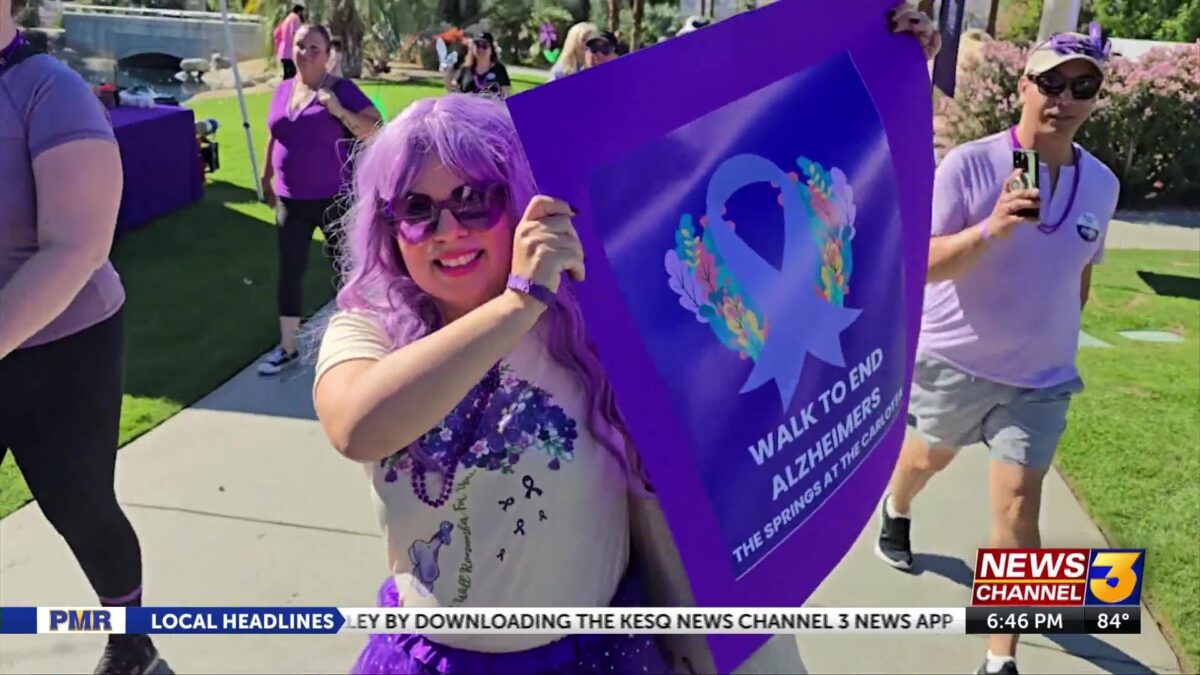Walk to End Alzheimer’s highlights organization’s many services and available support

Jeff Stahl
It was a sea of purple in Palm Desert on Saturday as people gathered for the annual Alzheimer’s Association Walk to End Alzheimer’s.
People carried flowers to support the organization’s many services and research aimed at finding an ultimate cure. The energy and smiles were on display at the city’s Civic Center Park as people walked to end Alzheimer’s and other forms of dementia.

More than 20-thousand people live with the disease in the Coachella Valley alone. So many more, especially their caregivers, are affected.
“It is extremely hard,” said Janet Barth, whose Husband has Alzheimer’s. He had a whole team walking in his honor.
“We thought that by having the whole group of us, we could, I don’t know, help further the cause,” Barth said.
Her husband, Melvin, was enjoying the walk and said, “We all want to be healthy, live good lives, and stretch those lives out by living as long as we can. Staying active.”
“It’s touched so many people,” said Janet, adding, “And I’ve been ignorant of the fact that it has touched so many people until it touched my family. And so it’s humbling.”
Everybody carries a flower for a different meaning. Those holding an orange know somebody with Alzheimer’s; those with a purple flower have lost someone to Alzheimer’s. Yellow means you’re a caregiver, and blue means you are somebody living with Alzheimer’s or another dementia.”

The walk also included a Promise Garden Ceremony and hope for a white flower someday soon, to represent the first survivor of Alzheimer’s.
Michelle Silvia Salado from the Alzheimer’s Association says this event, for her, helps honor her grandmother, whom she lost to the disease.
Salado said, “Here in the Coachella Valley, we have an office on the corner of Portola and Alesandro. We are there for you Monday through Friday, 9 to 5, and also 24 hours a day at our 1-800 number. 1 800-272-3900.”

170 thousand dollars is the fundraising goal. The drive runs through December.
Organizers point to new research and treatments for hope, but say a good diet, staying socially and mentally active, and getting exercise, moving– have all been shown to be effective in slowing the disease’s progression.
You can connect with the Alzheimer’s Association at 1-800-272-3900 or online at their local website.
